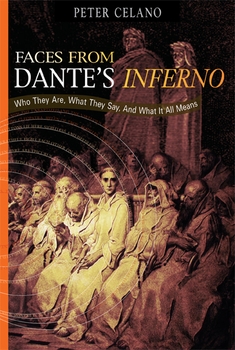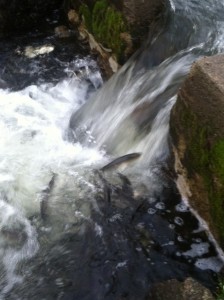We’ve just gotten our fall catalog in house and we couldn’t be happier.
So many wonderful, beautiful books!
Monthly Archives: May 2013
The Theology of Dan Brown
Reading Dan Brown’s Inferno? Check out the blog “Facing the Inferno: 60 Days in Dan Brown’s Hell” to learn more about Dante and his original poem, some really interesting info!
 Here is a taste (used with permission, of course!):
Here is a taste (used with permission, of course!):
Dan Brown’s novel, Inferno, arrived in Tuesday’s mail. There was an embargo on this book – no one in the media was permitted to review it until the actual publication date (May 14, 2013). So now, hundreds of book reviewers and bloggers are speedily reading it in order to post their thoughts to the world. Some of them even stayed up all night long to speed read and then post.
We will take it slower. This blog is not where you will go to find a synopsis of Dan Brown’s Inferno. You can find that almost anywhere. Instead, this is where you will come if you want to explore what Brown has to say about Dante, the poet, and Dante’s famous poem.
It won’t surprise you that Dan Brown gets a lot of things wrong. Or that he twists and imagines ideas and events that did not actually happen in order to enhance his fictional narrative. We will point out some of these things, here. But most of all, we will explore the real Dante.
A Prayer for Pentecost
On the birthday of the Church, we offer this prayer for the unity of Christians everywhere, that we may all know the inspiration of the Holy Spirit – the Creator, the Giver of Gifts, the Comforter – and be drawn together by the power of His love.
A Blessed Pentecost!
From all of us at Gloriæ Dei Cantores and Paraclete Press
The Explosive Energy of Pentecost – A guest post by Jack Levison
On Sunday, we’ll wear red to mark the start of the season of Pentecost. Why? To remember tongues as of fire that burned over the heads of Jesus’ earliest followers and friends.
Many of us, however, will remember with a splash of red what we’ll rarely experience: a rushing wind, tongues as of fire descending on each of us, and the capacity to speak out in a miraculous array of languages (Acts 2:1-13).
Still, there is something we can take away from Pentecost. In his commentary on this unlikely event, the apostle Peter, at the first Pentecost, dips into scripture to explain the method in God’s madness.
Before we look at what we can take away from Peter’s words, let me ask you to think about something: Peter had at hand any number of texts in the scriptures to explain this experience. He could have drawn a parallel between the powerful onrush of the spirit on the judges—Othniel, Gideon, Samson—to accentuate the power of the holy spirit to accomplish still more astonishing acts in history (Judges 3, 6, 13-15). He could have talked about the outpouring of the spirit, which transforms deserts into fertile gardens, and proclaim that God was now watering the arid spirituality of God’s people (Isaiah 44:3-5). He could have appealed to the descent of the spirit on the messiah, God’s anointed, and drawn from such a profound prophetic text that this new community would be the messianic leaven in the world, mediators of justice, guides to righteousness (Isaiah 11:1-9). He could have culled from Ezekiel’s vision of the valley of very many, very dry bones a promise of restoration and resurrection (Ezekiel 37).
Any number of these scriptural texts would have served Peter well. Any of them would have allowed Peter to see in this fiery band the future of the world. All of these are arresting images of renewal and liberation and leadership. Yet Peter picks this one, from a prophet whose predictions are pretty mundane — except for this astonishing word:
In the last days it will be, God declares,
that I will pour out my Spirit upon all flesh,
and your sons and your daughters shall prophesy,
and your young men shall see visions,
and your old men shall dream dreams.
Even upon my slaves, both men and women,
in those days I will pour out my Spirit;
And they shall prophesy (Acts 2:17–19, quoting Joel 2:28–29).
This is the church’s manifesto, its birthright, its destiny. The spirit turns society upside down. The spirit is poured out on old and young men, sons, too. But it is also poured out on daughters and slaves, both male and female. Anyone, anyone at all, top to bottom, east to west, male or female, can receive the spirit and prophesy. The spirit is not packaged neatly for the pious or privileged — the spirit is outpoured, indiscriminately.
Not all of us will experience the rush of a mighty wind, tongues as of fire on our heads, or the capacity to declare God’s actions in an array of languages, but we can participate in this vision, which tears the wineskins of conservatism — just what we should expect the spirit to do. The inclusion of slaves obliterates the rule of order. The inclusion of women, of daughters and female slaves, devastates the rule of men. Life as we know it explodes at Pentecost, in which the spirit is poured out on all flesh, and no less richly on female slaves than on powerful men.
If we choose to participate in this unsettling vision, we’ll unleash the explosive energy of Pentecost in our generation, just like Christians who’ve championed the unsettling work of the holy spirit long before our time. People like the renowned mid-19th-century Methodist preacher Phoebe Palmer, who insisted that the “promise of the Father,” Jesus’ reference to the holy spirit (Luke 24:49), inspired women with the power to proclaim Jesus Christ.1 She, like many before and after her, saw this promise fulfilled by the events of Pentecost:
God has, in all ages of the Church, called some of his handmaids to eminent publicity and usefulness; and when the residue of the Spirit is poured out, and the millennium glory ushered in, the prophecy of Joel being fully accomplished in all its glory, then, probably, there be such a sweet blending into one spirit … that the wonder will then be, that the exertions of pious females to bring souls to Christ should ever have been opposed or obstructed.2
The holy spirit, according to the story of Pentecost, topples hierarchy, like a mighty wind unleashed on us. The result? Men can’t speak in other languages more ably than women. Owners can’t proclaim God’s praiseworthy acts more deftly than slaves. Parents can’t prophesy more perceptively than their sons and daughters.
This Sunday, then, as you celebrate Pentecost, ask yourself whether you are willing to throw yourself, with the original inspired band, into a vision that is shaped, not by the world as we know it, but by divine disequilibrium.
1. Phoebe Palmer, Promise of the Father; or A Neglected Speciality of the Last Days (Boston: Henry V. Degen, 1859).
2. Phoebe Palmer, Selected Writings, edited Thomas C. Oden, in Sources of American Spirituality (Paulist, 1988), p. 39.
3. For an excellent discussion of women’s call to preach through two centuries of American history, see Priscilla Pope-Levison, Turn the Pulpit Loose: Two Centuries of American Women Evangelists (Palgrave Macmillan, 2004).
Meet Jerusalem!
One of our most favorite authors, Jerusalem Jackson Greer, was interviewed on her local NPR station ahead of the Books in Bloom Festival in Eureka Springs.
Great conversation about slowing down, writing, living a good life, and growing up with a name like ‘Jerusalem’. Click here to listen.
Giveaway! Faces from the Inferno
We’ve got a new book coming out in a few weeks on Dante’s Inferno. Whether you are reading the original by Dante or Dan Brown’s new novel, it’s a great companion guide. Click below to enter our Goodreads giveaway!
Goodreads Book Giveaway
Faces from Dante’s Inferno
by Peter Celano
Giveaway ends June 14, 2013.
See the giveaway details
at Goodreads.
Or check it out on our website: Faces from the Inferno
Taking our cue from the fish
It’s is officially the best time of the year! The herring are running again. For anyone who doesn’t have the distinct pleasure of living near the ocean, the herring (fish) swim upstream to lay their eggs in the calmer ponds.
The herring “runs” are some of the most beautiful, picturesque places I’ve ever seen. Small waterfall and pools, and a succession of sloops (like tiny locks in a river.)
There is a run about a five minute drive from Paraclete, where I took my family (twice!) in the last few days to see the amazing feat of determination that these fish perform.
I’ve always felt that the herring run is one of the most inspiring and heart-breaking places in the world.
These tiny creatures work so hard and their perseverance in the face of immense odds has always inspired and convicted me. Not only the incredible rush of water pushing them back, but also the birds.
I’ve never seen so many seagulls in my life, hunting in what seem to be the most unfair of circumstances!
On the other hand, I always walk away inspired to push through, even when things seem impossibly difficult.
Victory for Herring! (video)



